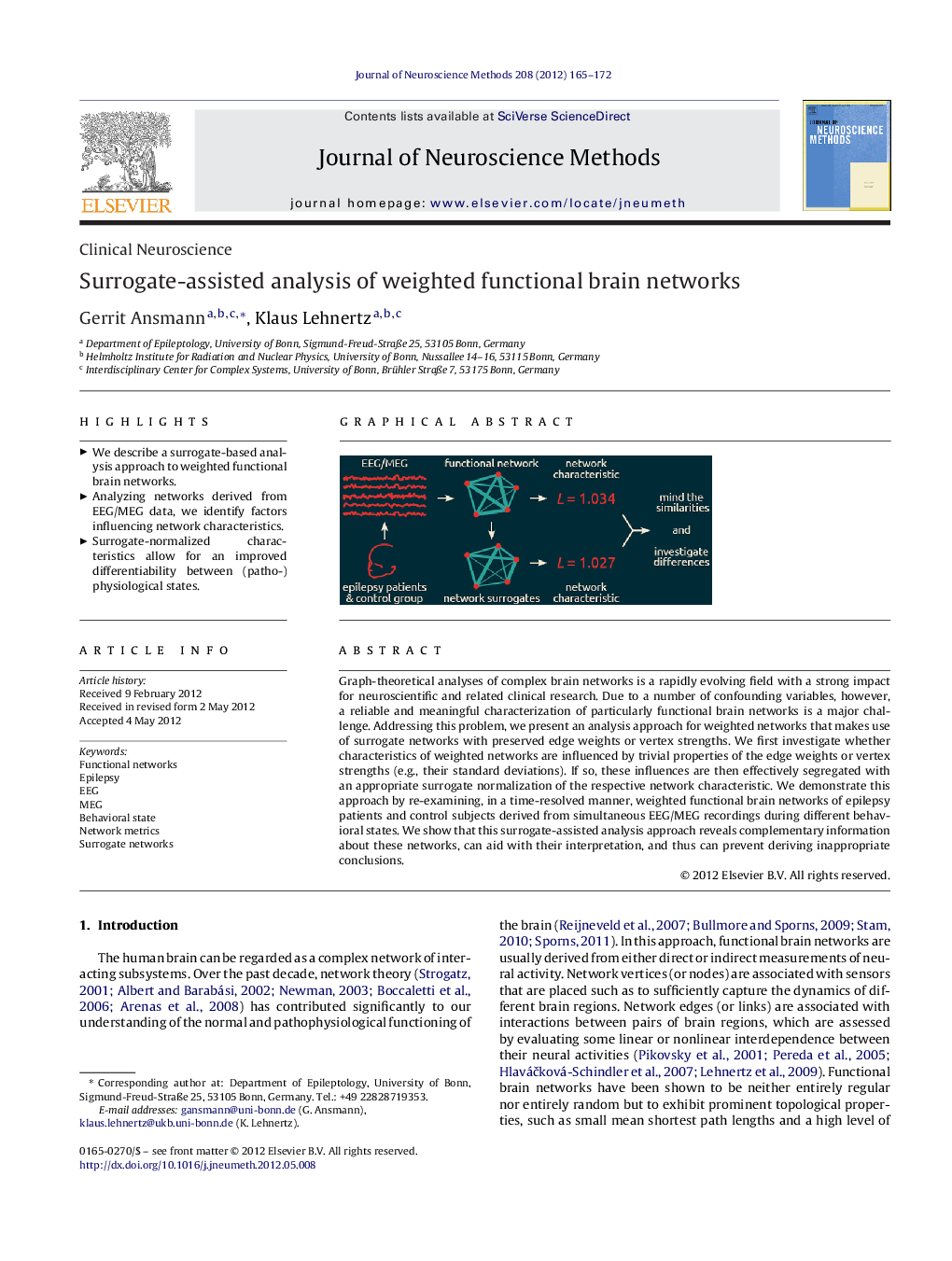| Article ID | Journal | Published Year | Pages | File Type |
|---|---|---|---|---|
| 6269285 | Journal of Neuroscience Methods | 2012 | 8 Pages |
Graph-theoretical analyses of complex brain networks is a rapidly evolving field with a strong impact for neuroscientific and related clinical research. Due to a number of confounding variables, however, a reliable and meaningful characterization of particularly functional brain networks is a major challenge. Addressing this problem, we present an analysis approach for weighted networks that makes use of surrogate networks with preserved edge weights or vertex strengths. We first investigate whether characteristics of weighted networks are influenced by trivial properties of the edge weights or vertex strengths (e.g., their standard deviations). If so, these influences are then effectively segregated with an appropriate surrogate normalization of the respective network characteristic. We demonstrate this approach by re-examining, in a time-resolved manner, weighted functional brain networks of epilepsy patients and control subjects derived from simultaneous EEG/MEG recordings during different behavioral states. We show that this surrogate-assisted analysis approach reveals complementary information about these networks, can aid with their interpretation, and thus can prevent deriving inappropriate conclusions.
Graphical abstractDownload full-size imageHighlights⺠We describe a surrogate-based analysis approach to weighted functional brain networks. ⺠Analyzing networks derived from EEG/MEG data, we identify factors influencing network characteristics. ⺠Surrogate-normalized characteristics allow for an improved differentiability between (patho-)physiological states.
